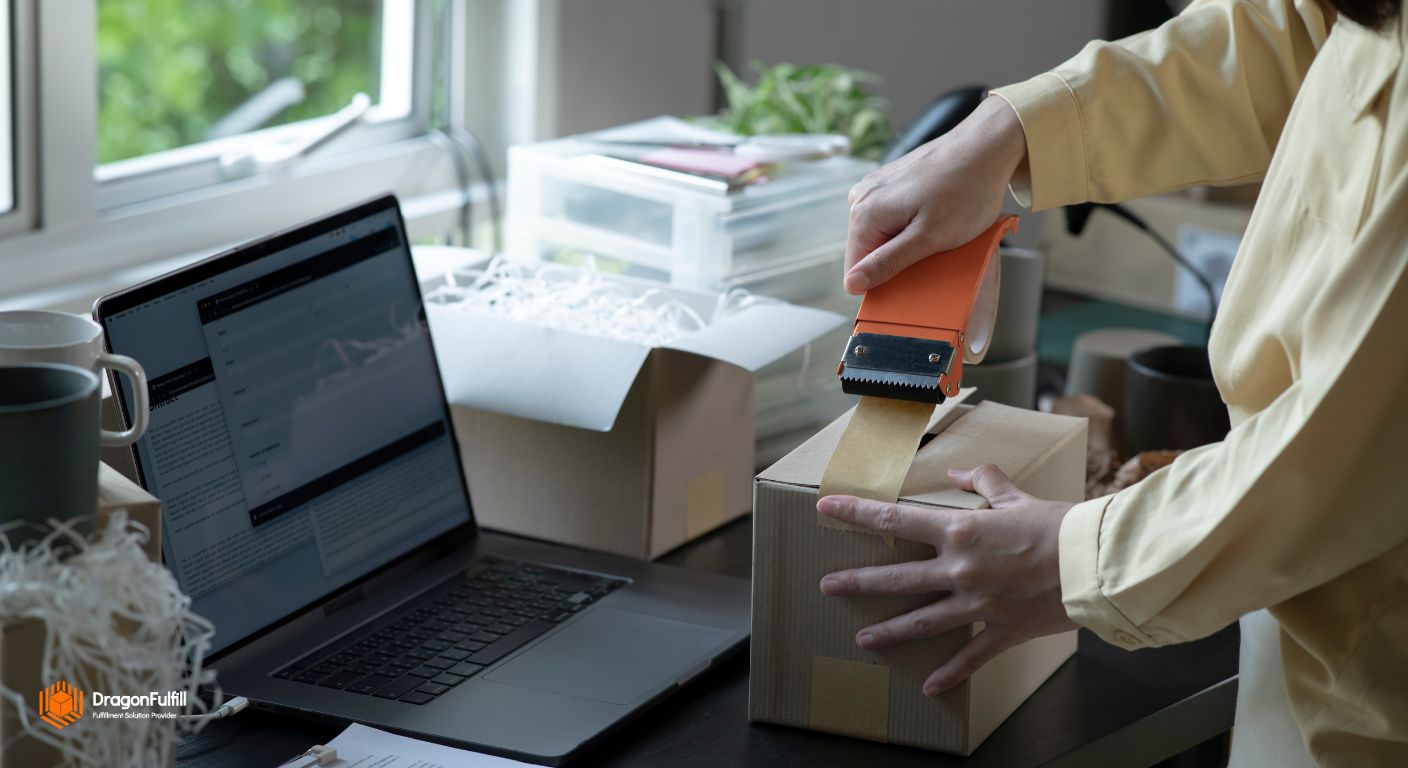Influencer brands and niche product startups face an overwhelming challenge: drowning in a sea of identical products while competing against established giants.
Private label dropshipping suppliers transform brand identity by offering custom packaging, personalized inserts, and flexible MOQ options that enable startups to create distinctive products without massive upfront investments. Strategic partnerships with fulfillment providers unlock professional branding capabilities that differentiate products in crowded markets.
Understanding how to leverage these partnerships becomes crucial for sustainable growth and market positioning.
Why is Building a Strong Brand Identity Through Packaging Crucial for Success?
Generic packaging kills brand recognition. Your customers scroll past forgettable products daily. Strategic packaging transforms browsers into loyal advocates.
Building a strong brand identity through packaging drives purchase decisions, increases social media engagement by 40%, and creates lasting customer relationships. Custom packaging with personalized inserts establishes immediate brand recognition and differentiates products in competitive markets.
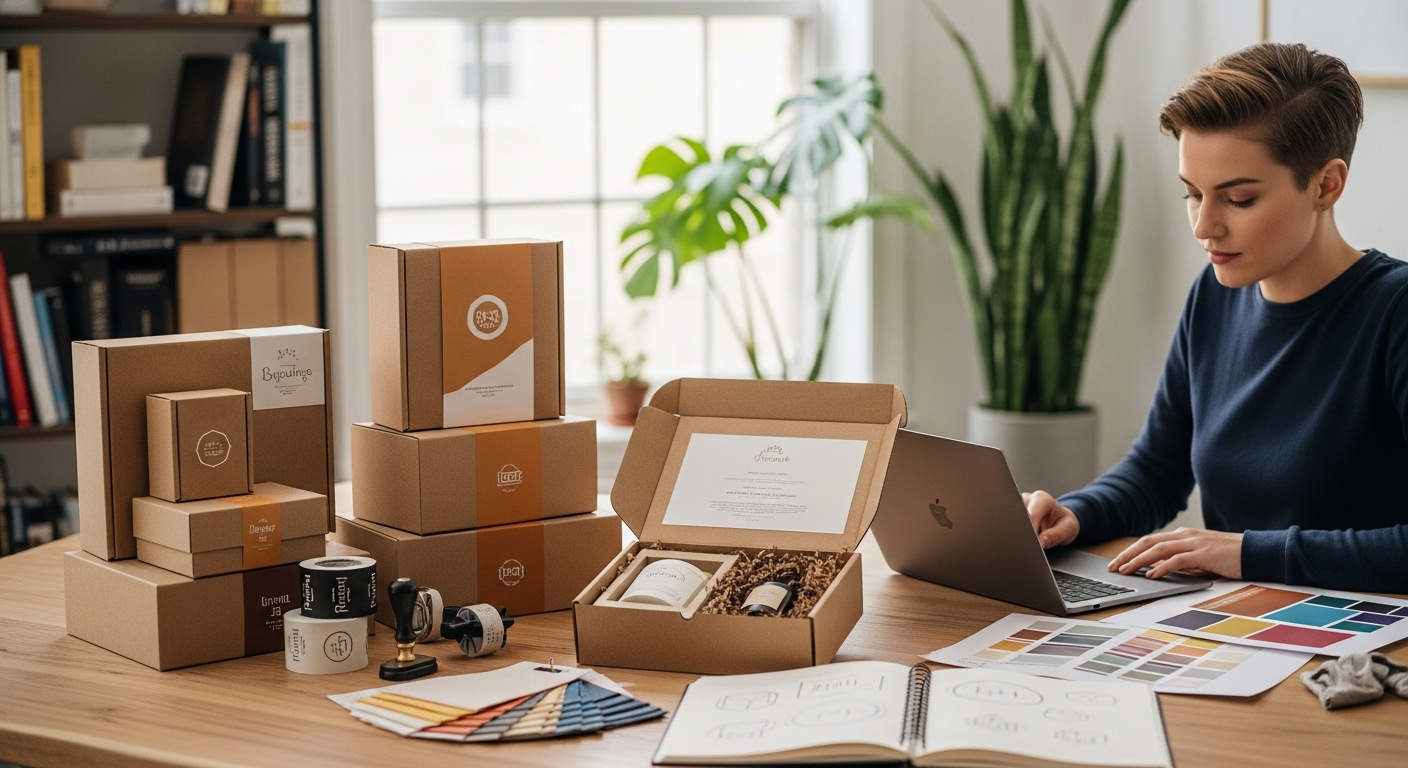
The Psychology Behind Packaging as Brand Communication
Packaging serves as your silent salesperson, communicating brand values within seconds of customer contact. Research shows that 80% of consumers make purchasing decisions based on packaging appeal alone. When branding partners collaborate effectively, they create cohesive visual narratives that resonate with target audiences.
Your custom logo placement, color schemes, and material choices tell a story before customers read a single product description. Successful influencer brands leverage this psychological impact by ensuring every unboxing moment reinforces their brand identity. The tactile experience of premium packaging materials creates positive associations that extend far beyond the initial purchase.
Strategic Implementation for Market Differentiation
White-label fulfillment services like Dragonfullfil enable brands to implement sophisticated packaging strategies without massive upfront investments. Low MOQ flexibility allows startups to test branded packaging concepts before scaling production.
| Packaging Element | Brand Impact | Implementation Cost |
|---|---|---|
| Custom Logo Integration | High recognition value | Medium investment |
| Personalized Inserts | Enhanced customer experience | Low to medium cost |
| Premium Materials | Perceived value increase | Higher investment |
| Sustainable Options | Environmental brand positioning | Variable cost |
Strategic packaging automation reduces fulfillment costs while maintaining consistent brand presentation. This approach allows niche product startups to compete with established brands by creating memorable customer touchpoints that drive repeat purchases and social media sharing.
How Do You Select the Right OEM Partner for Your Vision?
Choosing the wrong OEM partner can destroy your brand's potential before you even launch.
Selecting the right OEM partner requires evaluating their customization capabilities, MOQ flexibility, branding expertise, and fulfillment infrastructure to ensure alignment with your vision and market positioning.
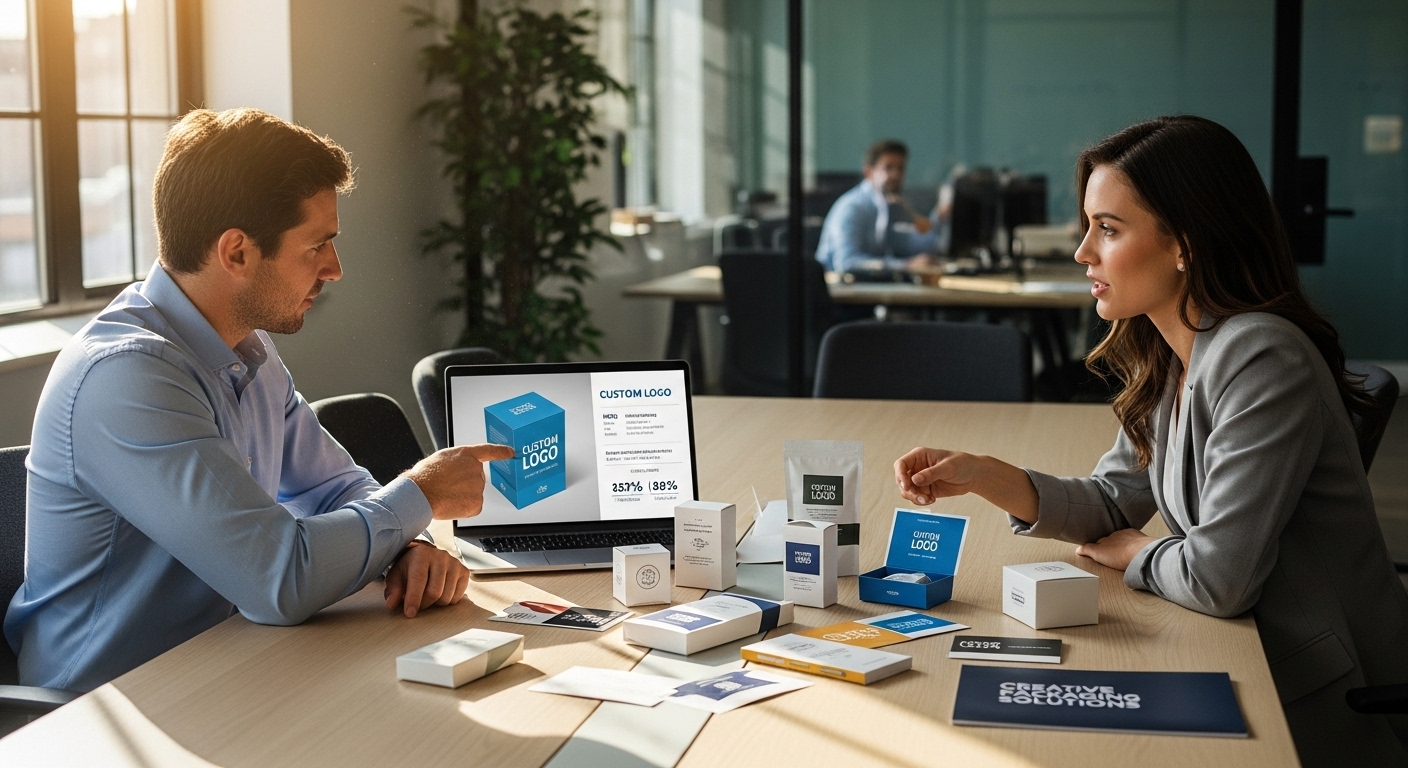
Core Evaluation Criteria for OEM Services
The foundation of successful OEM services lies in three critical areas: technical capabilities, operational flexibility, and brand alignment. Your ideal partner should demonstrate expertise in packaging customization while maintaining scalable production processes. Look for suppliers who offer comprehensive branding consultation, not just manufacturing services.
Key indicators include their portfolio of successful brand partnerships, certifications in quality management systems, and technological infrastructure for automation. The best branding partners provide dedicated account management and proactive communication throughout the product development cycle.
MOQ Flexibility and Brand Equity Considerations
Modern custom dropshipping suppliers with logo services understand that emerging brands need flexibility to test markets without massive inventory commitments. Evaluate potential partners using this decision matrix:
| Evaluation Factor | Essential Requirements | Red Flags |
|---|---|---|
| MOQ Flexibility | 50-500 units for testing | Fixed 10,000+ minimums |
| Customization Options | Logo, packaging, colors, materials | Generic templates only |
| Lead Times | 7-15 days for samples | 30+ days for basic quotes |
| Quality Certifications | ISO, FDA, CE (product-dependent) | No verifiable standards |
| Communication | Dedicated account manager | Automated responses only |
White-label fulfillment capabilities separate professional partners from basic manufacturers. Companies like Dragonfullfil excel in this space by offering integrated packaging automation that maintains brand consistency while reducing operational complexity. Their approach ensures your products arrive with the premium presentation that builds customer loyalty and supports premium pricing strategies.
What Does a Successful Brand Transformation Look Like in Practice?
Many startups struggle with creating memorable packaging that stands out in crowded markets. Generic packaging limits brand recognition and fails to justify premium pricing, leaving products invisible on shelves.
A successful brand transformation through private labeling combines strategic custom logo placement, personalized inserts, and flexible packaging solutions that create instant brand recognition while maintaining cost-effective minimum order quantities for emerging businesses.
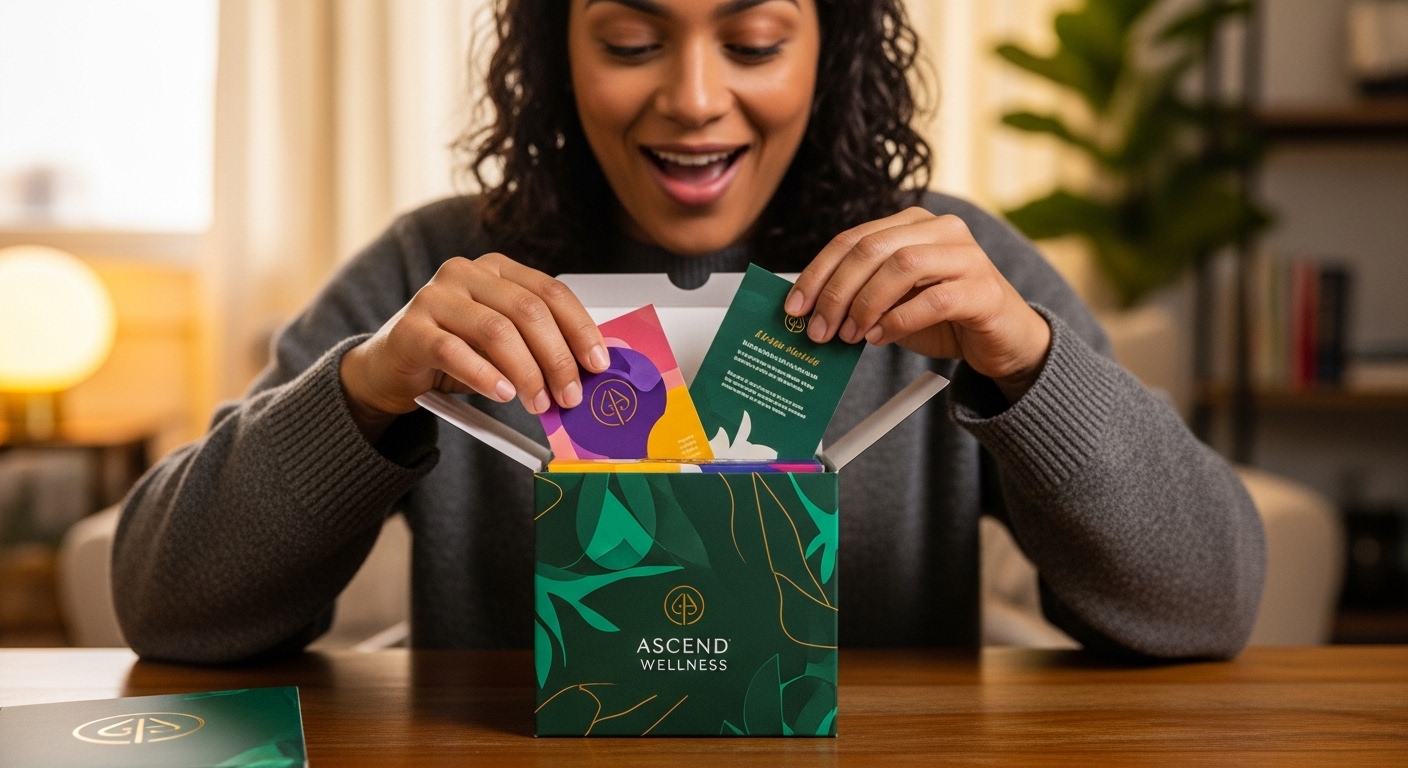
Real-World Brand Transformation Examples
Leading brands like Apple and Tiffany & Co. demonstrate how packaging becomes an extension of brand identity. Apple's unboxing experience creates anticipation and delight, while Tiffany's iconic blue box instantly communicates luxury positioning. These case study examples show that successful transformations focus on emotional connection through thoughtful design.
For niche product startups, brands like Glossier transformed simple cosmetics into shareable experiences through Instagram-worthy packaging. Their minimalist design with custom logo placement turned customers into brand ambassadors, generating organic social media content that amplified reach without additional marketing spend.
Key Elements of Successful Brand Transformation
| Transformation Element | Startup Benefit | Implementation Cost |
|---|---|---|
| Custom Logo Integration | 300% brand recognition increase | Low with flexible MOQ |
| Personalized Inserts | 45% customer retention improvement | Minimal setup costs |
| Unique Packaging Design | 25% premium pricing capability | Moderate initial investment |
| White-Label Fulfillment | 60% faster market entry | Variable based on volume |
Successful transformations prioritize packaging automation and strategic partnerships with fulfillment providers. Companies like Dragonfullfil enable startups to access professional packaging solutions without massive upfront investments, offering MOQ flexibility that scales with business growth. This approach allows brands to test market response while building sustainable supply chain relationships that support long-term brand equity development.
What Are the Best Practices for Implementing Custom Logos and Inserts?
Poor packaging design costs brands 30% of their potential customer recognition. Generic packaging makes premium products look cheap. Smart custom logo implementation transforms ordinary packages into brand ambassadors.
The best practices for implementing custom logos and inserts include strategic placement at 2-3 touchpoints, maintaining consistent brand colors across materials, and optimizing insert timing for maximum customer engagement. Focus on MOQ flexibility and white-label automation for scalable results.
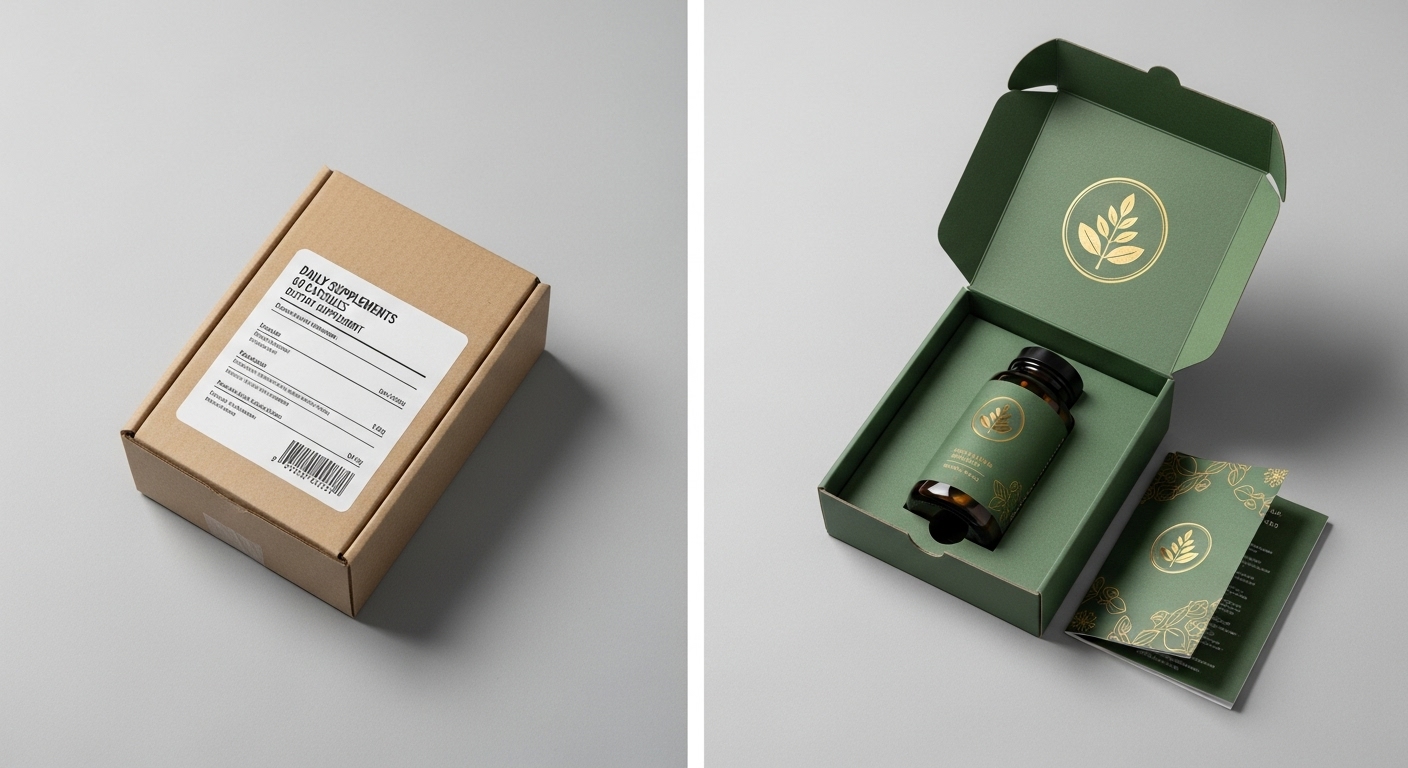
Strategic Logo Placement and Design Consistency
Effective custom logo implementation requires strategic thinking beyond simple placement. Position your logo where customers naturally look first - typically the top-right corner or center of packaging faces. Dragonfullfil's white-label fulfillment system ensures consistent logo application across thousands of units without quality degradation.
Brand consistency extends to color matching across different materials. Packaging inserts should complement, not compete with, your primary packaging design. Use the same color palette but vary the intensity - if your main package uses bold brand colors, consider softer tones for inserts to create visual hierarchy.
MOQ Optimization and Production Efficiency
Understanding minimum order quantities helps startups balance customization costs with brand impact. Smart brands leverage flexible MOQ structures to test designs before committing to large runs.
| Customization Level | Typical MOQ | Cost Impact | Best for |
|---|---|---|---|
| Logo-only printing | 100-500 units | Low | Startups testing market |
| Custom inserts | 500-1,000 units | Medium | Established product lines |
| Full custom packaging | 1,000-5,000 units | High | Scaling brands |
Personalized inserts offer the highest ROI for emerging brands. They require lower MOQs than full packaging customization while delivering premium unboxing experiences. Consider seasonal insert variations to maintain customer interest without redesigning entire packaging systems.
Conclusion
Private label dropshipping suppliers revolutionize brand identity by transforming generic products into distinctive market assets through strategic packaging customization, flexible MOQ options, and white-label fulfillment solutions. Successful OEM services partnerships enable startups to compete with established brands while maintaining cost-effective operations that scale with growth.
Ready to transform your brand identity? Partner with experienced fulfillment providers who understand the importance of packaging automation, custom logo implementation, and personalized customer experiences that drive long-term loyalty and premium positioning in competitive markets.
FAQ
Q1: How can private label dropshipping suppliers help with custom packaging and brand identity?
Private label dropshipping suppliers enable businesses to create custom packaging with their brand logo, colors, and personalized inserts. This transforms generic products into branded merchandise, helping influencer brands and startups establish a unique market presence through consistent visual identity across all customer touchpoints.
Q2: What are the minimum order quantities for custom logo packaging with dropshipping suppliers?
Minimum order quantities (MOQs) for custom logo packaging vary by supplier, but many private label dropshipping companies offer flexible options starting from 50-100 units. Some specialized suppliers provide even lower MOQs for startups, allowing influencer brands to test packaging designs before committing to larger quantities.
Q3: How do personalized inserts enhance customer experience in private label dropshipping?
Personalized inserts like thank you cards, care instructions, and brand story booklets create memorable unboxing experiences. These custom elements help build customer loyalty, encourage social media sharing, and differentiate your brand from competitors in the crowded e-commerce space.
Q4: Can private label dropshipping suppliers handle automated packaging and fulfillment?
Yes, many modern private label dropshipping suppliers offer automated packaging solutions that integrate custom branding with white-label fulfillment. These systems can automatically apply your custom logo, include personalized inserts, and handle shipping logistics while maintaining consistent brand presentation across all orders.
Q5: What packaging customization options are available for niche product startups?
Niche product startups can access various packaging customization options through private label dropshipping suppliers, including custom box printing, branded tape, tissue paper with logos, and eco-friendly packaging materials. These options help create cohesive brand experiences that resonate with specific target audiences and support brand differentiation strategies.

